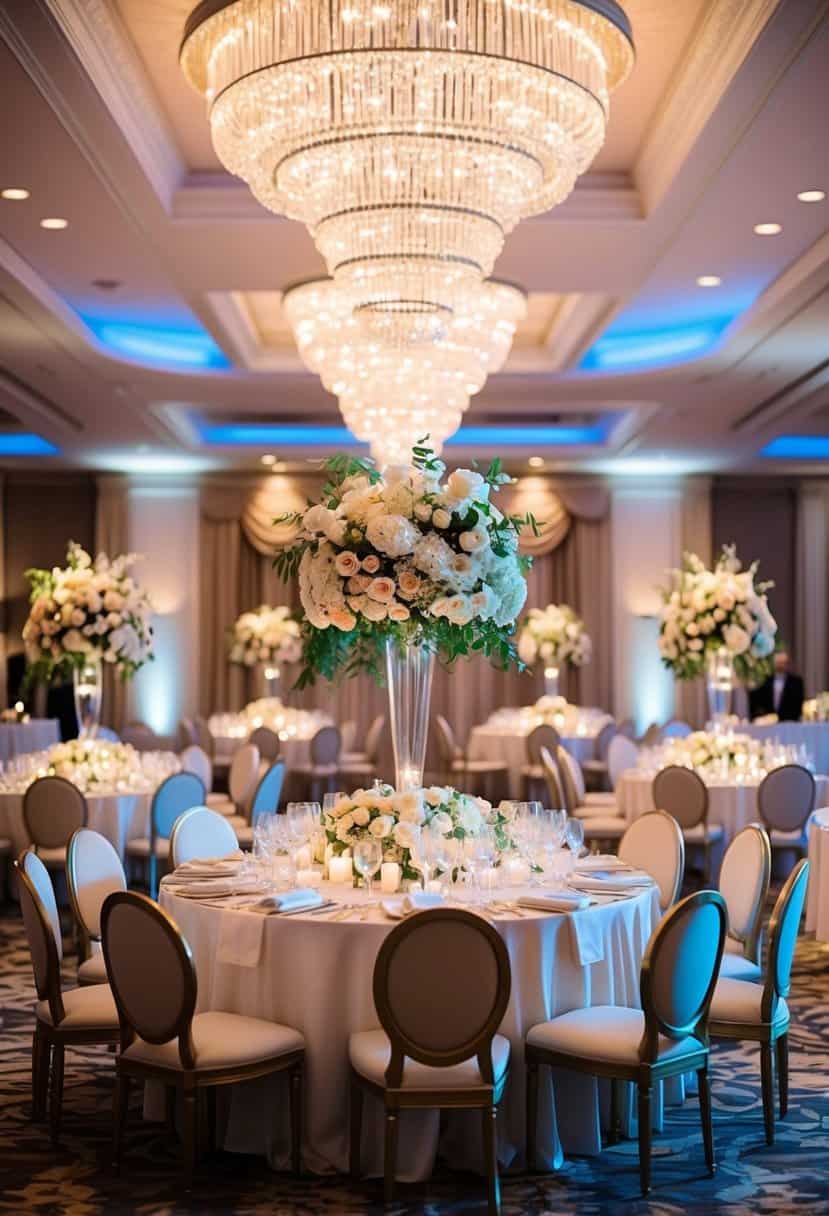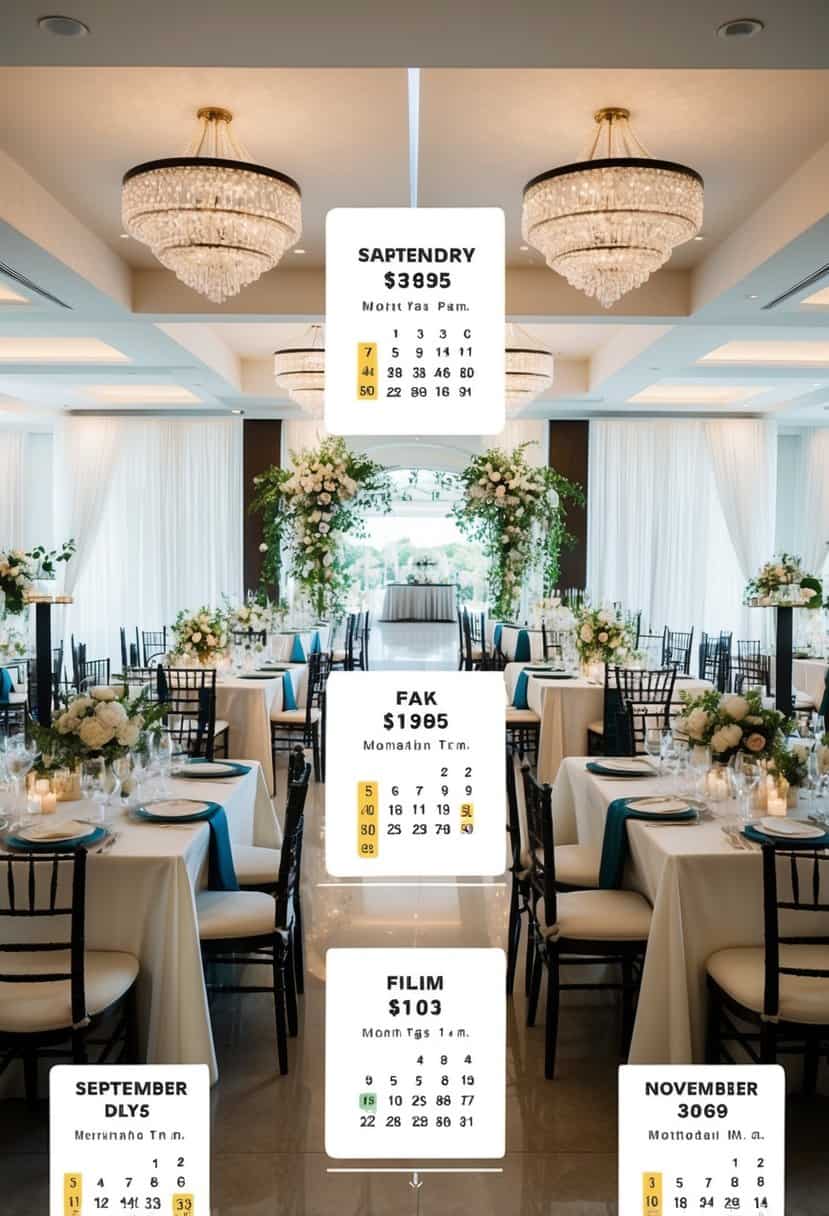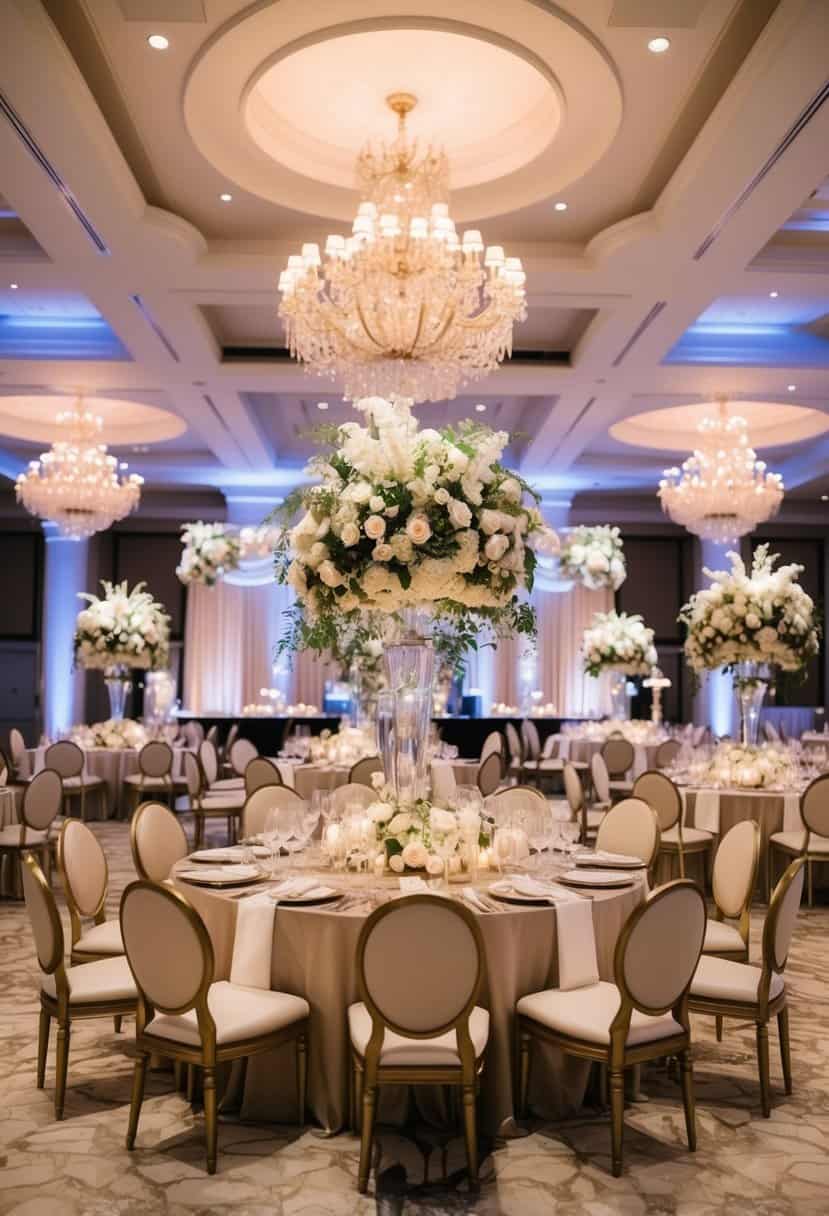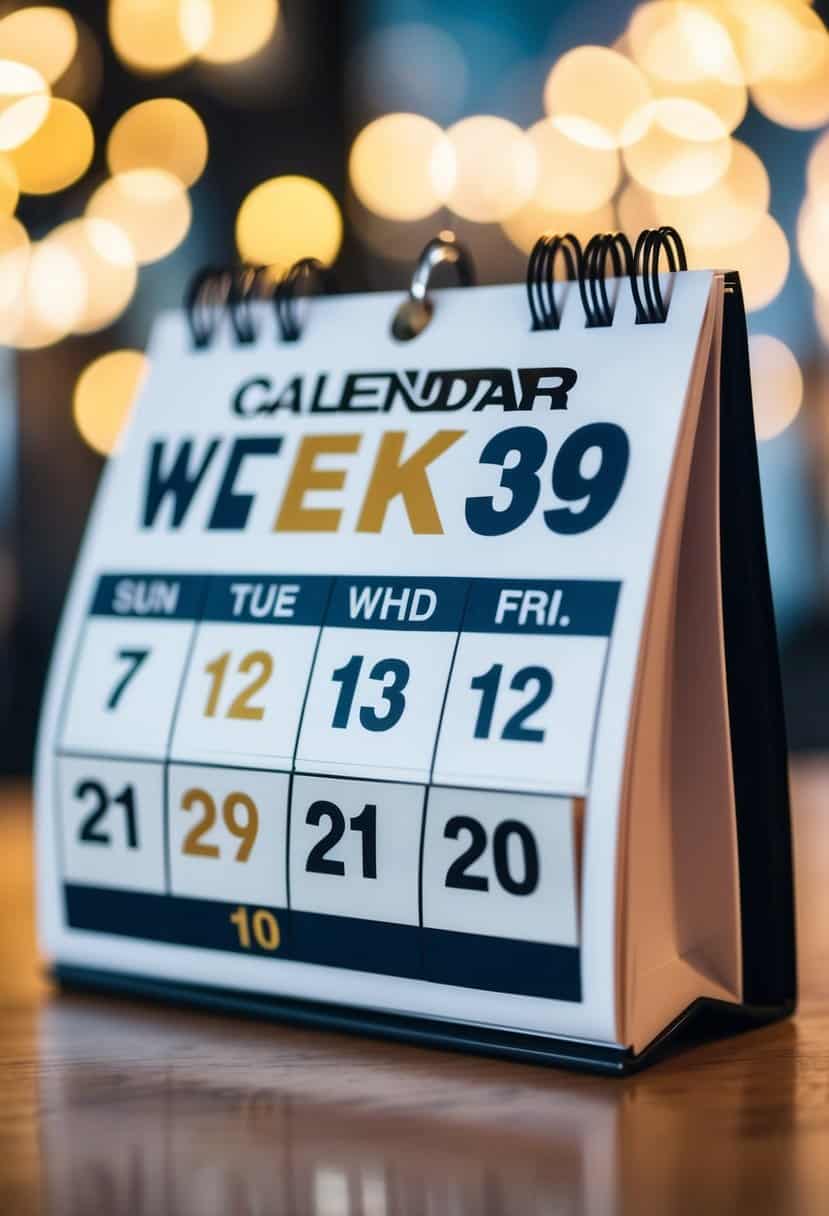What Days Are Weddings Most Expensive? Uncover the Priciest Times to Tie the Knot
Weddings can be expensive, and choosing the right day can affect your budget significantly. Saturdays are often the most expensive days to get married, particularly if they fall on holiday weekends like the Fourth of July. Vendors and venues may charge a premium due to high demand on these days.

As you plan your wedding, consider the cheapest days of the week to get married.
Off-season months like December, January, and February can also help save on costs. During these months, you’ll find venues and vendors more willing to offer discounts.
Understanding the costs involved, including the average wedding cost, helps you make informed decisions. Whether you aim for a luxurious event or a budget-friendly celebration, knowing which days are pricier ensures you plan within your means.
Understanding Wedding Costs

Understanding what affects wedding costs can help you budget effectively. Knowing the factors that influence these expenses and the average cost can guide your decisions.
Factors Influencing Wedding Expenses
Several elements can greatly impact your wedding budget.
Venue choice is a major factor; a luxurious location will cost more than a simple backyard ceremony. Timing also matters. Weddings on weekends or in peak seasons tend to be pricier.
Guest count can influence costs too. More guests mean more food, drinks, and larger venues. Vendors like photographers, florists, and caterers also play a key role in your expenses.
Each of these factors can vary depending on the state you’re in. Some states charge more for certain services, impacting the overall cost.
Average Cost of a Wedding
The average cost of a wedding varies by location and time. In the U.S., the average cost was about $33,000 in 2024. It’s important to note that costs can be higher in larger cities.
The number of guests can raise expenses significantly. Be mindful that inviting more people means spending more on catering and seating.
Remember that averages are just guides. Your preferences will ultimately shape your wedding budget. Consider what matters most to you to manage costs effectively.
Choosing Your Wedding Date

Choosing the right wedding date can significantly affect your budget. Certain days are more expensive than others due to demand, seasonal trends, and venue availability. Understanding how these factors influence costs can help you make an informed decision.
How Your Wedding Date Affects Cost
Your wedding date plays a big role in determining how much you’ll spend.
Saturdays are the most popular and costly days. They’re in high demand, which increases prices across venues and vendors. If you’re flexible, weekdays might offer discounts, as they are less sought after.
For example, choosing a day like Thursday can reduce venue fees and even caterer costs.
Winter months usually have lower demand, making them cheaper options. Choosing a January wedding might allow you to access off-peak pricing for venues and services. Prices for photographers or DJs could also be lower during this time. Seasonality is important, so consider whether a summer or fall date fits within your budget.
Popular and Expensive Wedding Dates
Popular wedding dates are often more expensive. Dates during peak wedding seasons like late spring and early fall are in high demand. These times of year also coincide with pleasant weather, making them attractive to many couples.
Holidays and three-day weekends are especially pricey. Many couples see them as convenient, but this convenience comes with a higher price tag. New Year’s Eve or Valentine’s Day weddings are romantic, but expect to pay more for venue and service bookings on these days. Consider these factors to decide if these popular dates align with your budget.
The Venue and Vendor Impact

When planning a wedding, choosing the right venue and vendors significantly affects the overall cost. The venue often takes up the largest portion of the budget, while hiring vendors can also add up quickly. Understanding how these elements affect expenses can help you make informed decisions.
Selecting a Wedding Venue
The wedding venue can be one of the most expensive parts of your wedding budget.
Choosing a location that fits your vision and guest list is vital, but these choices come with costs. The average cost of a wedding venue in the United States can reach around $10,000. The appeal, location, and size play significant roles in price.
For instance, venues with a scenic view or a fashionable location might charge more. Considering your budget early will help you balance your dream venue with what you can realistically afford.
Hiring Wedding Vendors
Vendors such as caterers, photographers, and florists are essential for creating an unforgettable day.
On average, couples hire about 10 vendors, making it important to understand what each offers. Some vendors bundle services to help you save, while others specialize in unique or luxury options that can add to costs.
Take time to compare vendors and prioritize what matters to you most, whether it’s capturing every moment with a top photographer or providing a gourmet dining experience.
Vendor Marketplace Dynamics
The vendor marketplace can greatly influence wedding costs. This sector is competitive, with many suppliers vying for your business.
Each vendor may cost differently, depending on their reputation, demand, and location. The wedding industry is extensive, encompassing many services like planners and decorators.
Keeping an eye on seasonal trends and special promotions can help you find better deals. Flexibility in your wedding date might also help you secure discounts from vendors, as prices can vary considerably depending on demand.
Additional Services and Extravagances

Planning a wedding often involves choosing extra services that can add charm and uniqueness but also increase the expenses. Key areas where costs might add up include photography and videography, culinary options, and glamorous details that make your wedding truly special.
Photography and Videography
Capturing memories is important, and hiring a talented wedding photographer can be a big part of your budget.
Experienced photographers provide high-quality images that you’ll treasure for years. They may offer packages that include engagement shoots and multiple photographers on the day.
Videography is another service many couples choose. While it adds to the cost, having a video lets you relive your wedding day.
Consider whether you want a full film or just highlights. Discussing options with your chosen vendor can help you decide what’s best for you.
Catering and Culinary Costs
Food and drinks often make up a significant part of your wedding budget.
Catering options range from simple buffets to multi-course plated dinners. You might also consider specialized menus like vegan or gluten-free, which can increase costs.
Some venues require you to use their in-house catering, while others allow outside vendors. Don’t forget to consider drinks. An open bar can make your celebration lively but may be expensive. To save, consider serving a few signature cocktails or providing a limited selection of drinks.
Extravagant Details
Extravagant details can make your wedding feel luxurious. This includes elegant table settings, unique floral arrangements, and customized lighting. Each choice adds beauty and can set your event apart.
Engagement rings and wedding bands are another investment. Custom designs or those with rare stones can be costly. If you’re considering elaborate decorations or high-end jewelry, ensure they fit within your budget. Deciding where to splurge or save can be challenging but is crucial for staying on budget.
Strategies for Managing Wedding Expenses

Weddings can be costly, but with careful planning, you can keep expenses under control. Key strategies include effective budgeting, skillful negotiation with vendors, and clever cost-saving tips.
Effective Budgeting for Your Wedding
Starting with a budget is essential. Determine your total budget by considering factors like your financial situation and average wedding costs. Allocate funds to different aspects, such as venue, catering, and attire.
Break down costs into percentages. For instance, spend about 50% on the venue and catering. Use online budgeting tools or a simple spreadsheet to track expenses. This will help you stay on target.
Hiring a wedding planner can help manage costs, as they have experience and insider knowledge.
Negotiating with Vendors and Seeking Discounts
When you approach vendors, always ask if there’s room for negotiation. Many vendors may offer discounts, especially if you promise referrals or pay in cash.
Consider bundling services. For instance, using the same vendor for both floral arrangements and decorations might get you a better price. Also, explore off-season dates or weekdays for additional discounts.
Communicate clearly about your budget constraints. Vendors often appreciate upfront discussions and might adjust their offerings accordingly.
Cost-Saving Tips and Tricks
There are many ways to save on your wedding. You can create DIY decorations to add a personal touch without spending too much. Also, consider borrowing items like tableware and linens from friends or family.
Opting for a smaller guest list can significantly lower average wedding costs. Fewer guests mean reduced catering and seating expenses.
You might also want to rethink traditional aspects like wedding favors. Sometimes, a heartfelt note is more appreciated. Lastly, keep an eye out for seasonal sales on attire and other items, which can also help in saving money.


